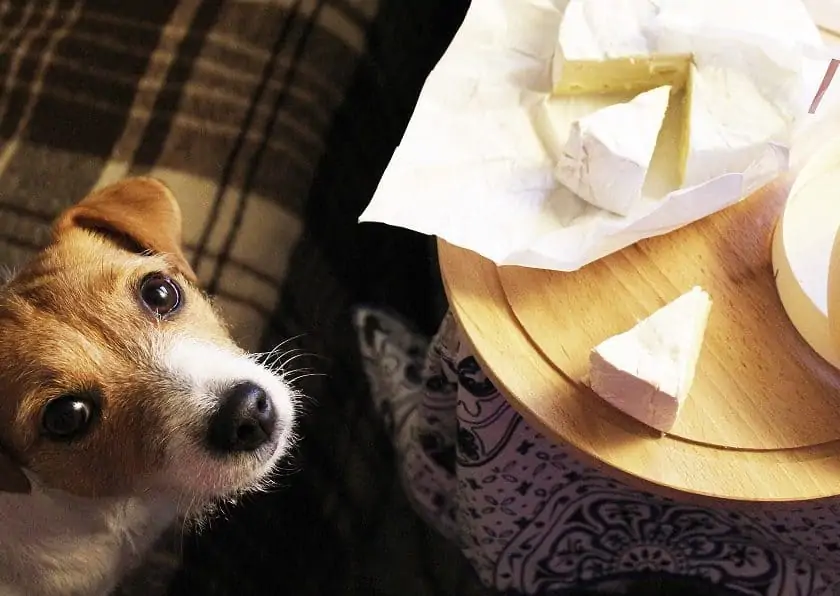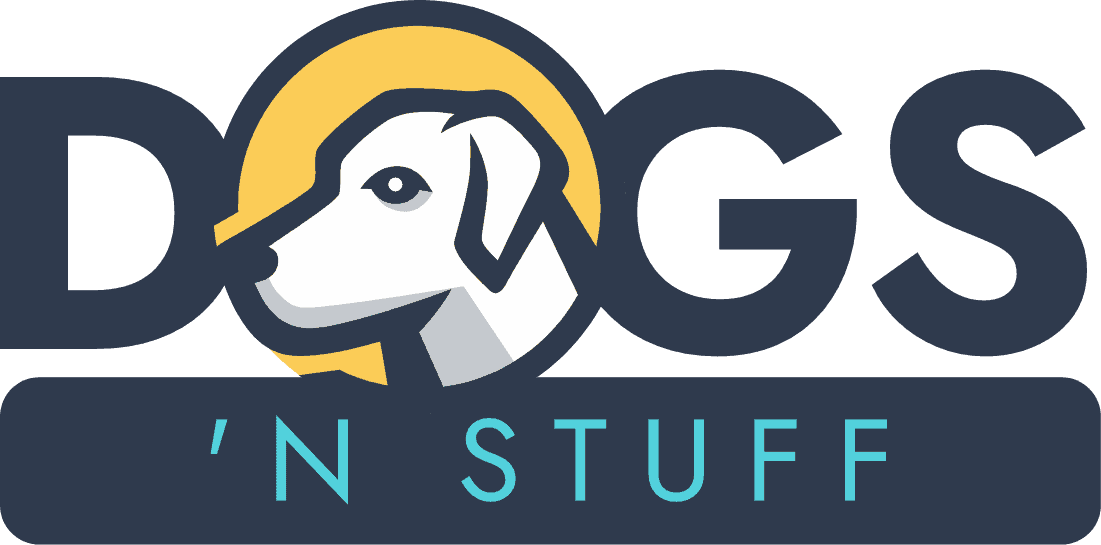If your dog is an enthusiastic eater, you will likely find that it tries to eat anything in sight, however, not all food that we eat as humans is safe for our canine companions. Cheese is a key ingredient in many of our diets and it comes in several varieties.
Whilst cheese itself isn’t considered to be toxic to dogs, certain types contain ingredients that can be harmful to them. If you enjoy blue cheese, you may be wondering whether it is safe to feed your dog, we have provided you with the answers in our guide below.
Table of Contents
What is blue cheese?
Blue cheese describes a type of cheese that has had mold penicillium added to it which gives it its spotty appearance. As implied by its name, these spots are blue although the exact shade can vary.
It can be made from either cows, goats, or sheep’s milk and can easily be identified by its strong smell and unique taste.
The fungus that is used in the process of making blue cheese can produce roquefortine C and this is a substance that many dogs are sensitive to.
Is blue cheese safe for dogs?
You should avoid feeding your dog blue cheese. This is because the bacteria that the cheese creates as it ripens (roquefortine C) can be toxic to them.
As mentioned previously, many dogs have a sensitivity towards this substance. Roquefortine C is not only found in Roquefort blue cheeses but it can also be found in stilton blue cheese.
If your dog happens to consume blue cheese it may suffer from the following symptoms: diarrhea, upset stomach, vomiting, or seizures. These symptoms can vary in severity but they are going to be worse for dogs that have ingested a larger portion of blue cheese.
Dog’s that are lactose intolerant or allergic to dairy should not be fed cheese or any other dairy product, regardless of quantity as they are likely to become quite sick.
What to do if your dog eats blue cheese?
If your dog has only eaten a small amount of blue cheese, chances are that it will not suffer from any severe health implications.
Despite this, you should still keep a close eye on them in case they start to develop any of the symptoms that we have mentioned above. You will need to take them to a vet if they start to become sick.
Roquefortine C is typically found in cheese that is overripe or bad and if this is consumed by your dog, in the worst cases this can lead to death.
Gone off cheese is typically eaten by dogs who enjoy rummaging through the trash to see what tasty snacks they can get their paws on. As such, you should make sure that you discard old blue cheese correctly so that your dog won’t be able to get to it.
If you suspect that your dog has eaten blue cheese, you should contact the vet as a matter of urgency. The sooner you act upon it, the more likely your dog is to make a full recovery.
What dog shouldn’t be fed cheese?
If you have a puppy or a fully grown dog that is in optimal health it can be fed certain types of cheese in moderation. However, dogs that have pancreatitis shouldn’t be given any cheese because the fat content can inflict more stress onto their pancreas.
Secondly, dogs that are overweight should not be fed cheese. Again this is due to its high-fat content. If the vet has suggested that they need to lose a few pounds, you should focus on feeding your dog healthier alternatives.
As we have previously discussed, you shouldn’t feed your dog any dairy if they have an allergy or are intolerant to lactose. Likewise, if your dog has a sensitive stomach that gets upset easily when they eat certain foods, you shouldn’t give them any blue cheese.
What cheese is safe for dogs to eat?

There are certain types of cheese that are safe for canine consumption. Remember that practically all cheeses contain fat so you need to ensure that you do not give your dogs too much.
Cheeses that are deemed safe are cottage cheese, cheddar, and mozzarella. Cheese contains protein, vitamin A, calcium, B-complex vitamins, and fatty acids, all of which are beneficial for your dog’s health. As such, it is ok to feed it to your dog as an occasional treat.
They will be accessing all of these things from their normal diet, so cheese doesn’t really need to be added.
What other types of cheese aren’t safe for dogs?
Cream cheese is often flavored with artificial flavorings which are added to enhance the taste. However, these additives can be toxic to your dog and because of this, you should avoid feeding it to them.
Goats cheese, feta, and brie are all varieties that have a high-fat content. For this reason, a dog that consumes either of them is likely to suffer from a health issue in return. This can include pancreatitis or if eaten excessively it can lead to obesity.
Final Thoughts
Whilst some types of cheese are safe for your dog to eat as an occasional treat, blue cheese should be avoided. Due to the presence of Roquefortine C, it can be toxic if ingested by your dog, especially if it is eaten in large quantities.
If you suspect that your dog has eaten any blue cheese you should record their symptoms. Some dogs will have very mild symptoms but for some, the consequences can be life-threatening.
Contact a vet as they will be able to inform you of the steps that you should take next. Some types of cheese are much safer for dogs than blue cheese.
Your dog’s diet should be made up of balanced, nutritional meals, and cheese shouldn’t be added to it or given as a substitute. If you have any concerns about giving your dog cheese, you may wish to avoid it.

